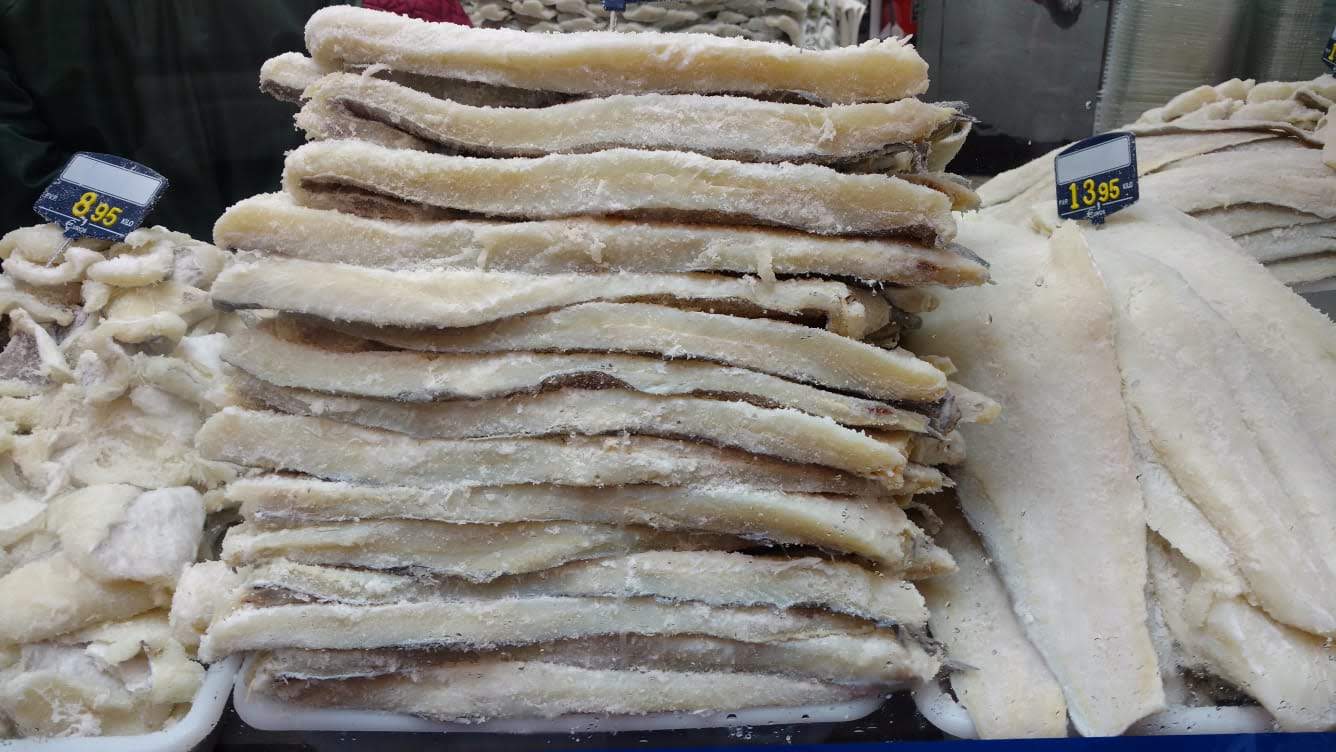Archives

Paschal full moon. Josu Larrinaga Zugadi.
Holy Week remains undoubtedly the festive cycle lived with deepest religiosity by Catholic and other Christian communities, rituals and processional imagery with a strong medieval flavour serving as visual methodology to emphasize, in a pedagogical manner, basic concepts and precepts of the aforementioned creed or cult.
The celebration of Ash Wednesday and the ‘strewing of ashes’ marked the end of Carnival merrymaking and the beginning of Lent: a period for reflection and fasting. Such religious quarantine commences on Palm Sunday, preluding the penitent character of Holy Week, determined, in turn, by the paschal full moon of Resurrection Sunday. (more…)

Salt fish for sale. Joseba Erkoreka. Labayru Fundazioa Photographic Archive.
My mother was a good hand at cooking salt fish, makailaoa, in Bizkaia Basque. Or practice might make perfect. The fact is that we used to eat salt fish regularly, and it would be she who bought, desalted and cooked it.
The Vikings are said to be the first to preserve cod by drying and in their travels brought it with them. Over the centuries the harvest, processing and commercialization of cod became a lucrative business. The Basque fleet fished for cod twice a year in waters off Newfoundland, some reaching as far as Greenland and North America. Hundreds of tons of cod were caught, beheaded, gutted and salted onboard. Fish processing continued ashore, upon return, in the codfish-drying plants. (more…)


